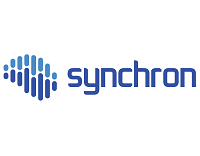 Synchron has announced the results from a study in which four people with amyotrophic lateral sclerosis (ALS) received an implant of the company’s Stentrode device—a small, mesh-like material inserted within a patient’s blood vessel that does not require invasive, open brain surgery. The results were presented on 29 March as part of an exclusive press briefing highlighting breakthrough science at the American Academy of Neurology’s 74th annual meeting (AAN 2022; 2–7 April, Seattle, USA).
Synchron has announced the results from a study in which four people with amyotrophic lateral sclerosis (ALS) received an implant of the company’s Stentrode device—a small, mesh-like material inserted within a patient’s blood vessel that does not require invasive, open brain surgery. The results were presented on 29 March as part of an exclusive press briefing highlighting breakthrough science at the American Academy of Neurology’s 74th annual meeting (AAN 2022; 2–7 April, Seattle, USA).
Researchers monitored participants for one year and found the device to be safe, with no serious adverse events that led to disability or death, according to Synchron. The Stentrode device also stayed in place for all four patients and the blood vessel in which the device was implanted remained open. Receiving the implant allowed participants to use a computer to communicate by text, and perform daily tasks, such as online shopping and banking, a company press release states.
“People with ALS eventually lose their ability to move their limbs, making them unable to operate devices like a phone or computer,” said study author Bruce Campbell (University of Melbourne, Melbourne, Australia). “Our research is exciting because while other devices require surgery that involves opening the skull, this brain-computer interface [BCI] device is much less invasive. It receives electrical signals from the brain, allowing people to control a computer by thought.”
Rather than drilling through the skull, the Stentrode is fed through a patient’s vein until it reaches the brain. The device, comprised of a net-like material with 16 sensors attached, expands to line the vessel wall. That device is connected to an electronic device in the chest that then relays the brain signals from the motor cortex—the part of the brain that generates signals for movement—into commands for a laptop computer.
“These results are a huge advancement for the field of BCI. We have shown that our endovascular BCI approach is safe, and allows patients to accomplish daily online tasks without invasive brain surgery,” said Thomas Oxley, CEO and co-founder of Synchron. “Years of research and technological development culminated in this moment and, as we continue to develop our technology, it has the potential to change the lives of millions of patients globally who suffer from paralysis, and other debilitating neurological and brain-related diseases.”








